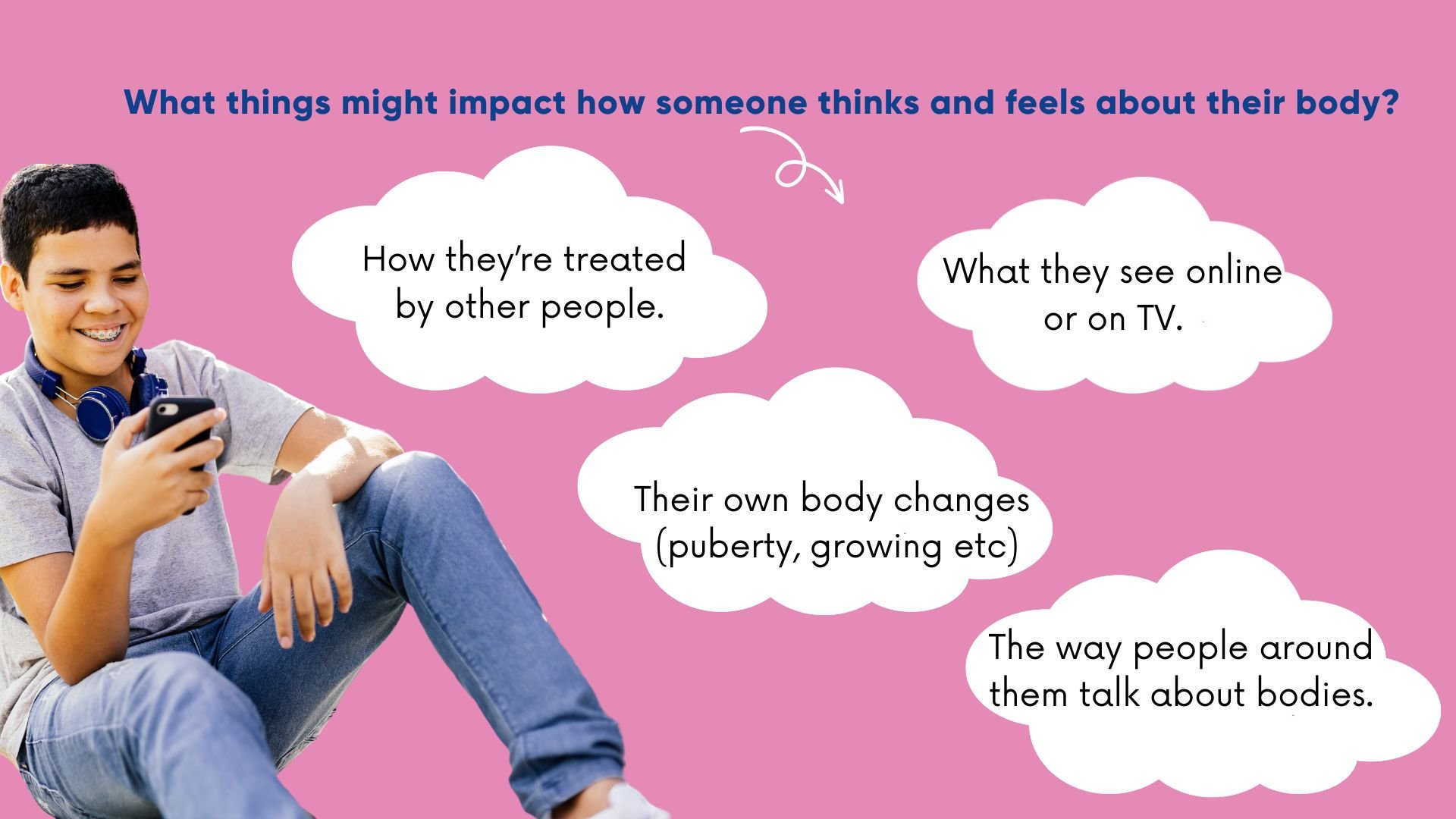Why does body image matter?
Nutritionist Jennifer Nash on what body image is, and why it’s so important (aka - why we do what we do here at The Body Happy Organisation CIC!)
If you have a body, you have body image
Body image is the way we think and feel about our body and in turn how we treat it. Contrary to popular belief, positive body image doesn't have a huge amount to do with what we look like (although the way our body looks can impact the way we are treated by society, which in turn can affect the way we think and feel about our body).
Credit: Photo by Allan Mas
What affects our body image?
Many different things can impact how we think and feel about our bodies, from society and the media’s focus on appearance and body ideals, to our relationships with family and friends and how they talk about bodies and appearance, to our feelings about aspects of our identity. We will all have different and unique relationships with our bodies, therefore body image is a complex and personal experience.
Image taken from our student workshops for KS3.
Poor body image is a mental health issue
Negative body image is associated with mental health issues such as depression, low mood and decreased self-esteem[1],[2]. Poor body image also increases the likelihood of developing disordered eating behaviours and eating disorders2,[3].
Body image can affect the way we perform at work and school, and the way we engage with sports and exercise activities. It can play a major role in the way we socialise and form relationships. Plus, it can impact the way we treat other people too. Body image isn’t just an individual self-esteem issue, or a wellbeing issue – it’s a social justice issue too.
Is body image an issue in kids?
Shockingly, 66% of children and teens feel bad about their body ‘most of the time’[4]. Poor body image doesn’t just affect adolescents – children as young as three years old express body concerns[5]. It’s not just an issue for girls – body image is a major concern for boys too[6] – and research suggests those in the LGBT+ community have higher incidence of negative body image[7].
Nurturing positive body image is essential, for our children and for wider society.
Credit: Photo by Charles Parker
Three things you can do now to foster positive body image, for yourselves and the children in your care:
1. Make less appearance-based comments and compliments, and instead focus more on the positive things our bodies can do, or compliments related to someone’s personality or identity – ‘you’re such a kind, thoughtful person’ rather than ‘you always look so amazing’
2. Seek out representation of a broad range of body types and appearances – this may be in books, TV, or on social media – to encourage a wider and more inclusive ideal of ‘beauty’ and to teach children that everyone has value and deserves respect. All bodies are good bodies.
3. Talk! A major step in improving body image is being open and honest with those close to you about how you feel. Encourage children to communicate their feelings and emotions to you about their bodies. This will develop an essential skill of being able to identify and express thoughts and feelings related to body image.
Check out our many resources on body image, such as the book Body Happy Kids: How to raise children and teens who love the skin they’re in by our founder Molly Forbes.
Check out our post on diet culture – the system of beliefs in our culture which perpetuates body ideals – and how it is directly at odds with promoting positive body image.
If body image concerns are causing you or someone you know significant distress, please seek help from a health professional.
Resources for children and young people in distress:
Young Minds UK - support helpline details for those in crisis
Other helplines and sources of support can be found on this page of the Place2Be charity website.
[1] Gillen MM. Associations between positive body image and indicators of men’s and women’s mental and physical health. Body Image. 2015 Mar;13:67-74.
[2] Goldschmidt AB, Wall M, Choo THJ, Becker C, Neumark-Sztainer D. Shared risk factors for mood-, eating-, and weight-related health outcomes. Heal Psychol. 2016 Mar;35(3):245-52.
[3] Tiggemann, A. & Clark, L. Predictors and health-related outcomes of positive body image in adolescent girls: A prospective study. Developmental Psychology, 2016; 52(3), 463-474.
[4] Women and Equalities Committee. Sixth Report: Changing the perfect picture: An inquiry into body image. 2021.
[5] Professional Association for Childcare and Early Years (PACEY), 2016. https://www.today.com/health/children-young-3-have-poor-body-image-talk-dieting-says-t102453
[6] Be Real Campaign. Somebody Like Me: A report investigating the impact of body image anxiety on young people in the UK. 2017 Jan;1-44.
[7] Morrison MA, Morrison TG, Sager CL. Does body satisfaction differ between gay men and lesbian women and heterosexual men and women? A meta-analytic review. Body Image. 2004 May 1;1(2):127–38.



